#Industry
It's Electric - or Electrified - Whatever, Just Get It Right
The 2018 North American International Auto Show, aka the Detroit Auto Show, is upon us, and at least one of the new vehicles shown will be electrified. But not necessarily electric.
Yet, journalists, both those who cover the industry and especially those who normally work other beats (such as business or news), will continue to incorrectly conflate the two. Which in turn will give this editor even more gray hairs.
QOTD: Can You Crystal Ball Future Ford Fusion Fortunes?
Have you driven a Ford, lately? I haven’t — but Ford has nonetheless been on my mind. Last week, my QOTD inquired about the upcoming Bronco, and whether Ford would mess up the established Bronco formula. The majority of you seem to think they will. That same day, we ran a post about the cancellation of a Fusion redesign.
And that’s left me with even more Ford questions, and fears about future Fusion fates. Let’s discuss.
U.S. Auto Sales in 2017 - Year's End Delivers Letdowns As Market Shrinks
Automakers released 2017 year-end numbers today and, despite lower or near flat year-over-year volume for most, the performance beat the expectations of most analysts.
Still, American new vehicle sales slipped a hair under 5 percent in December, dropping by 1.75 percent to a total of 17.245 million for all of 2017. This brings the parade of annual growth to a screeching halt, as the industry has posted year-over-year gains ever since the dark days of 2009.
Still Hot After All These Years: Not Every Passenger Car Model Has One Foot In the Grave
I often joke that not only are we all destined to buy a crossover in the near future, we’ll one day become crossovers. Oh, how the TTAC guys laugh…
Still, it’s hard to avoid the crossovers-are-replacing-cars narrative, as it isn’t some far-out theory — it’s a cold, hard reality. Crossover and SUV market share grows each year as buyers abandon traditional passenger cars in favor of a vehicle that does everything at least marginally.
That said, not every model faces the same rate of abandonment. Certain cars — through a hazy combination of performance, value, nameplate recognition, and other, more nebulous factors — haven’t yet been dropped off on the front steps of the orphanage by their once-loving guardians.
Let’s take a look at some surprisingly healthy performers in the non-premium, non-sports car class. Cars that aren’t declining in popularity, as this analysis isn’t about overall volume. Guess what? None of these vehicles are the Toyota Camry or Honda Accord, two models currently locked in a battle for midsize sedan supremacy (and worthy of their own singular coverage).
Hard to believe, we know, but there’s loyalty and desire to be found elsewhere.
The Difference Between Ford and General Motors' Longterm Strategies
While General Motors has become progressively more brazen in outlining its plans for the future, Ford has kept its cards a bit closer to the chest. We do know both companies have similar long-term goals, but Ford has been (rather wisely) preoccupied, adjusting its fleet to meet global demand and ensuring production flexibilities that should prevent it from being caught off guard by an industry turnaround.
It’s interesting because, a little over a year ago, former Ford CEO Mark Fields was promising a complete evolution of the automaker into something called “a mobility company.” However, it now looks as if GM is the firm making a beeline toward alternative revenue streams and a new business model, while Ford takes a more measured approach.
Automakers Need to Improve Voice Command Systems ASAP
Amazon’s Echo has already invaded homes across North America, but it’s now beginning to creep into vehicle infotainment systems. My parents have one and both are quite fond of its ability to answer basic queries through intuitive voice commands. Though my mother refers to the system as my father’s “new wife,” it prefers to be addressed as Alexa when being issued instructions. If you need another point of reference, it’s reminiscent of Apple’s Siri, the computer from Star Trek, and any other automated technology using a female voice as the primary interface.
However, as handy as these systems are, they sometimes make mistakes. Alexa is great at giving me the weather but, when you give her more complex requests, she’ll sometimes get confused. That’s not a big problem when you are able to whip out your phone and go online, but it can be real annoying when driving. Early voice command interfaces in automobiles were infuriating — it was often easier to give up and input whatever information you were trying to shout at Ford Sync, BMW iDrive, or whatever decade-old system you happened to be using.
Thankfully, voice recognition is far better now than it was in 2008. But with so many concerns about automotive safety cropping up, it’s a little surprising that nobody has yet perfected an interface that effectively allows motorists to keep their hands where they belong — on the wheel.
With an EV on the Way, Mini's Looking for Partners and Thinking Hard About the U.S.
Mini faces a fork in the road in the United States. The retro-themed brand, reintroduced in the U.S. marketplace in 2002 by parent company BMW Group, needs to decide what it wants to be. Sales are falling as consumer tastes evolve towards larger vehicles. New technologies are cropping up at a rapid pace. What is the child of the British Motor Corporation, British Leyland, Rover Group, and BMW Group to do?
BMW Group management board member Peter Schwarzenbauer knows the brand needs to evolve — and not just in the U.S., where the brand reach a high point in 2013. After announcing a new electric Mini Cooper Hardtop (Mini E) for 2019, Schwarzenbauer took some time to address its U.S. plans.
Buick Poised to Become GM's Greenest Brand - If the Public Wants It
The General Motors division, known for past land yachts like the Electra 225, Roadmaster, and Riviera, will become the automaker’s cleanest in the years to come. Whether that holds true in the United States market depends on a lot of things, including whether lobby groups succeed in saving the marked-for-extinction EV tax credit.
Duncan Aldred, vice-president of sales and marketing for GM’s Buick and GMC divisions, claims the near-luxury Buick badge will appear on the company’s future electric vehicles. However, given the shaky state of the EV market in America, new Buicks will head to greener pastures first.
Europeans Slowly Fall Victim to Pickup Truck Fever
Don’t worry, they aren’t suffering. As shown by the rise of pickup trucks as daily drivers and family haulers in North America, Europe’s burgeoning love affair with versatile light trucks isn’t hurting the owners. It’s traditional passengers car makers who must worry.
Sales stats arriving from the Continent show a marketplace that’s increasingly different from years gone by. The increasing popularity of SUVs and crossovers in the land of diesels, manual transmissions, and small displacements is nothing new, but the exploding popularity of honest-to-God pickups is.
Tesla Production Troubles May Be Continuing Due to Design Changes, Hiring Issues [UPDATED]
Tesla’s Model 3 production problems are well documented, including the recent firings/layoffs. Now we’re hearing that while Tesla has conceded it has production “ bottlenecks” (and blamed some of the issues on suppliers failing to meet their deadlines), the company may also be shooting itself in the foot with mismanagement.
A TTAC reader with insider knowledge claims a design change to an aluminum frame component has idled production for nearly two weeks. In addition, an Indeed.com job posting from about 45 days ago sought temporary contract workers to program the robots on the assembly line.
That last bit is notable, as typically the hiring for that job would have wrapped up much sooner in advance of the production launch.
Mitsubishi Rebrands, but Will It Work?
As I scanned my social media feeds last week, I noticed a fair amount of journalists posting that they were headed to the Tokyo Motor Show on Mitsubishi’s dime. While automaker-funded junkets to an international auto show aren’t uncommon – I’ve been on such trips myself – the fact that it was Mitsubishi footing the bill for international airfare and hotels in one of the world’s most expensive cities raised my eyebrows.
Don’t worry, this isn’t a screed about journalistic ethics and press junkets. I only mention it because automakers don’t spend that kind of money on media without a purpose. They have something in mind that they want covered, and while they won’t attempt to dictate that the journalists report only glowingly about what they’re doing (at least I hope not), they will expect coverage, even if it’s neutral or negative, from those they flew out there. All publicity being good publicity, that sort of thing.
Boastful Toyota Exec Feels Little Sympathy For Foolish Rivals
If only other automakers were as sensible and wise as Toyota. If those companies held Toyota’s Magic 8 Ball, conjuring up all the right answers in the little purple window, they wouldn’t be so hasty to embark on risky ventures.
That’s the view of Toyota’s executive vice president, who’s apparently feeling pretty pleased with himself and his company. Didier Leroy broke from the automaker’s staid, stay-the-course-and-don’t-ruffle-feathers attitude at the Tokyo Motor Show this week, describing his rivals’ faults at a dinner held on the show’s sidelines.
Plunge headlong into electric vehicles? Sure, make wild long-term promises to customers, Leroy said. Toyota doesn’t do that. It just hands you a real car when it’s ready. Oh, and those diesels everyone’s worried about? Toyota fell out of love with them long before the word “dieselgate” left anyone’s lips.
Toyota’s feeling its oats.
Automakers Take Stock After Major Metal Supplier Admits Selling Shoddy Aluminum
It’s often hard to remove an ingredient after the cake’s emerged from the oven. Because of this, news of Kobe Steel’s falsified inspection reports no doubt came with a fair bit of nervous collar tugging for executives at several automakers.
The Japanese company, which has subsidiaries in numerous countries, is a go-to supplier for the automotive and aircraft industries, providing steel, copper and aluminum components to companies as diverse as Ford and Boeing. Last week, Kobe admitted to selling substandard (or suspected substandard) materials to 500 companies, among them Ford, Volvo, Toyota, Honda, Nissan, Mitsubishi, and possibly Mazda.
Oh, and Mercedes-Benz, Tesla, General Motors, Hyundai, and Renault.
Maybe you’ve heard of them.
The Pressure's On: Hyundai Motor America's Newly Minted CEO Needs to Turn It Around
After Hyundai’s American division canned former CEO David Zuchowski for failing to meet internal sales targets last December, it’s no mystery what Job One is for the new guy.
Kyung Soo Lee, a 61-year-old veteran of the company who started his career back in 1982, takes the helm of a troubled ship next week, Hyundai announced Thursday. As president and CEO, Lee (Kenny to his friends) is responsible for reversing a dismal sales trend that sunk his predecessor, as well as the company’s U.S. fortunes.
Chris Bangle to Automakers: You're All Wimps and Your Designs Stink
No car designer in recent history comes close to touching former BMW Group design chief Chris Bangle for controversy. For decades to come, auto scribes will pen articles looking back on his influence on BMW’s lineup, most of which will mention the “Bangle Butt” within the first 100 words.
Bangle’s 17-year tenure at the German automaker ended in 2009, after which he vacated the auto industry, started up a design firm bearing his name, and left his past products for the punditry to debate for all time. Well, Bangle is back, in a manner of speaking, and he’s working on a vehicle from an unlikely source.
He also spilled his guts at the Frankfurt Motor Show. The man known for avant-garde flourishes and risky design adventures claims “hyper-conservative, hyper-terrified” automakers are just re-toasting the same slice of bread.



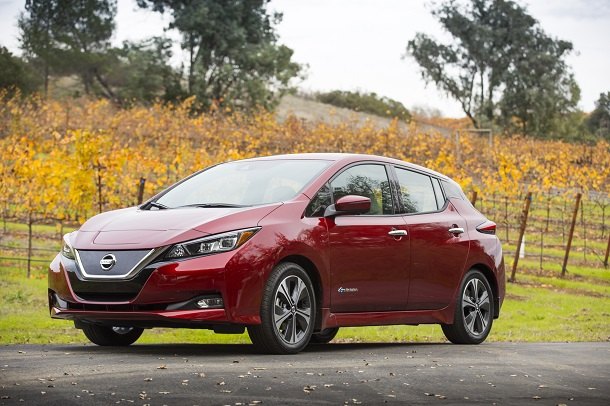

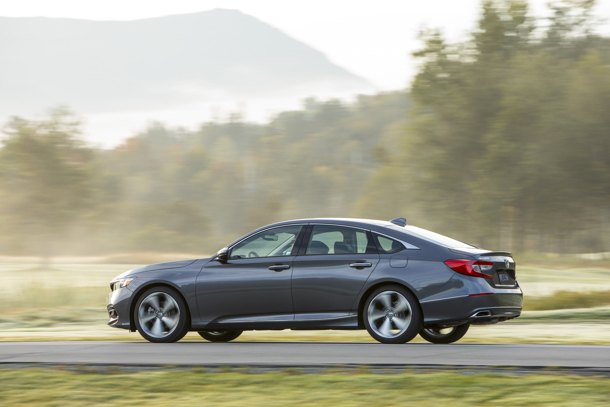




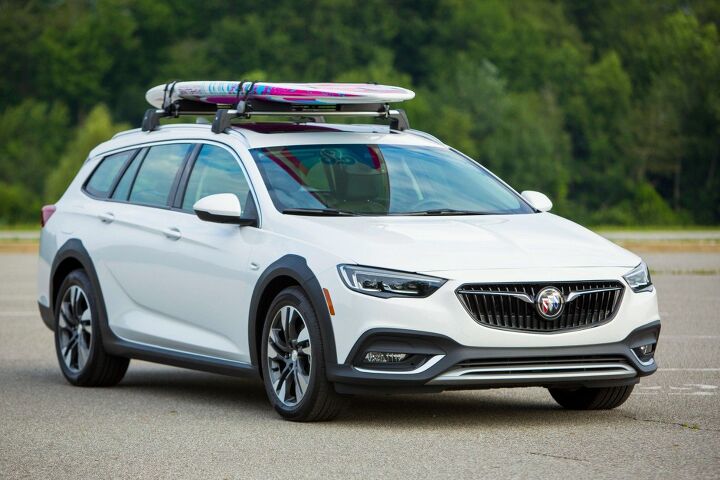
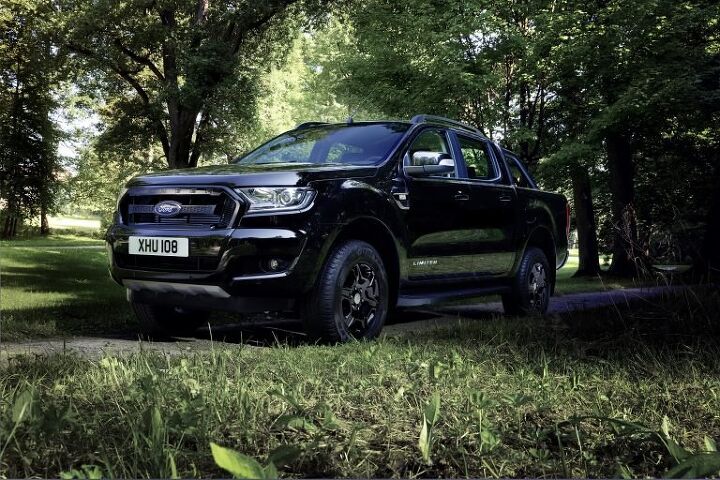
![Tesla Production Troubles May Be Continuing Due to Design Changes, Hiring Issues [UPDATED]](https://cdn-fastly.thetruthaboutcars.com/media/2022/07/19/9201420/teslas-feverish-production-drive-sometimes-means-partial-assembly-at-stores-report.jpg?size=720x845&nocrop=1)
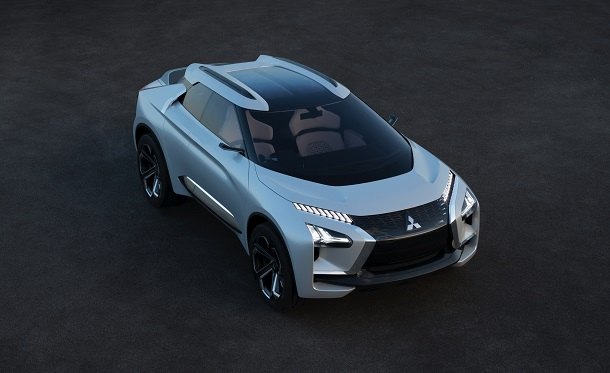


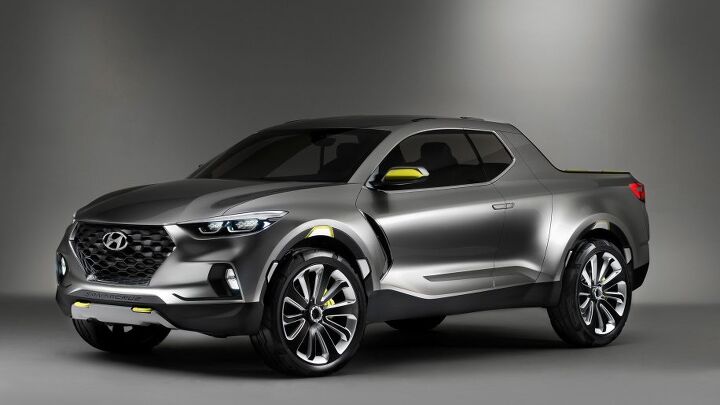
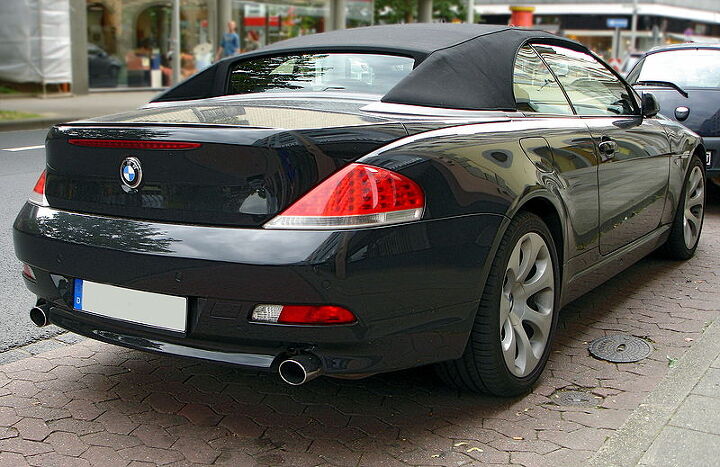












Recent Comments